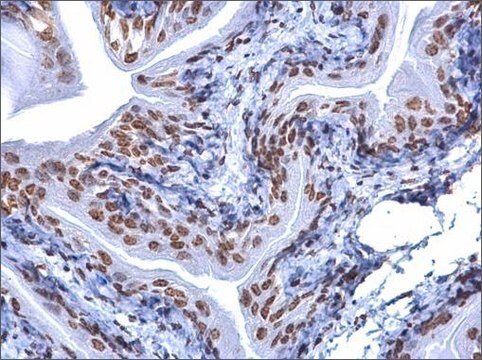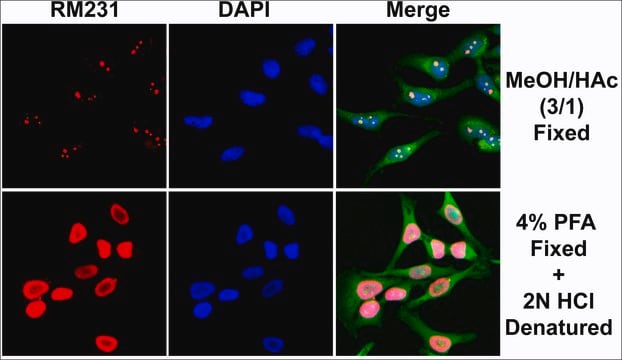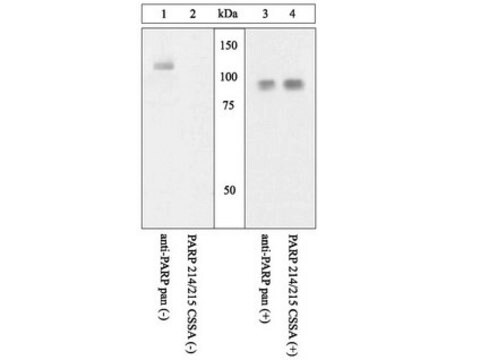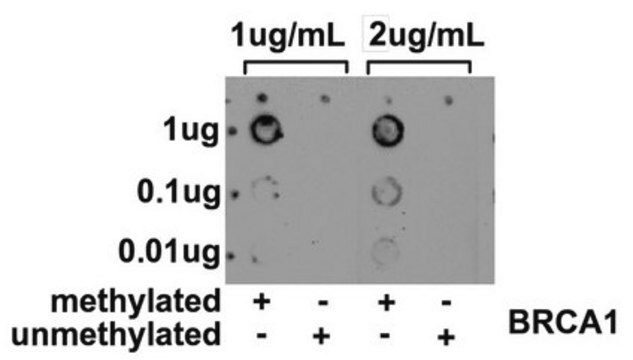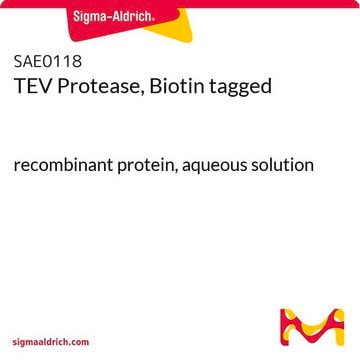ABE460
Anti-dimethyl Histone H3 (Arg2), symmetric Antibody
serum, from rabbit
Sinónimos:
H3R2me2s, Histone H3/a, Histone H3/b, Histone H3/c, Histone H3/d, Histone H3/f, Histone H3/h, Histone H3/i, Histone H3/j, Histone H3/k, Histone H3/l
About This Item
Productos recomendados
origen biológico
rabbit
Nivel de calidad
forma del anticuerpo
serum
tipo de anticuerpo
primary antibodies
clon
polyclonal
reactividad de especies
human
reactividad de especies (predicha por homología)
mouse (based on 100% sequence homology), rat (based on 100% sequence homology)
técnicas
ChIP: suitable
dot blot: suitable
immunohistochemistry: suitable
western blot: suitable
Nº de acceso NCBI
Nº de acceso UniProt
Condiciones de envío
wet ice
modificación del objetivo postraduccional
dimethylation (Arg2)
Información sobre el gen
human ... HIST1H3F(8968)
Descripción general
Inmunógeno
Aplicación
Immunohistochemistry Analysis: A representative lot from an independent laboratory detected Histone H3 (Arg2) in drosophila chromosomes (Migliori, V., et al. (2012). Nat Struct Mol Biol. 19(2):136-144.).
Chromatin Immunoprecipitation Analysis: A representative lot from an independent laboratory immunoprecipitated Histone H3 (Arg2) from P493-6 cell lysate (Migliori, V., et al. (2012). Nat Struct Mol Biol. 19(2):136-144.).
Epigenetics & Nuclear Function
Histones
Calidad
Western Blotting Analysis: A 1:1,000 dilution of this antibody detected dimethyl Histone H3 (Arg2) in 10 µg of nocodazole treated HeLa cell lysate and demonstrated a loss of signal in untreated HeLa cell lysate.
Descripción de destino
Forma física
Almacenamiento y estabilidad
Handling Recommendations: Upon receipt and prior to removing the cap, centrifuge the vial and gently mix the solution. Aliquot into microcentrifuge tubes and store at -20°C. Avoid repeated freeze/thaw cycles, which may damage IgG and affect product performance.
Cláusula de descargo de responsabilidad
Not finding the right product?
Try our Herramienta de selección de productos.
Código de clase de almacenamiento
10 - Combustible liquids
Clase de riesgo para el agua (WGK)
WGK 1
Certificados de análisis (COA)
Busque Certificados de análisis (COA) introduciendo el número de lote del producto. Los números de lote se encuentran en la etiqueta del producto después de las palabras «Lot» o «Batch»
¿Ya tiene este producto?
Encuentre la documentación para los productos que ha comprado recientemente en la Biblioteca de documentos.
Nuestro equipo de científicos tiene experiencia en todas las áreas de investigación: Ciencias de la vida, Ciencia de los materiales, Síntesis química, Cromatografía, Analítica y muchas otras.
Póngase en contacto con el Servicio técnico